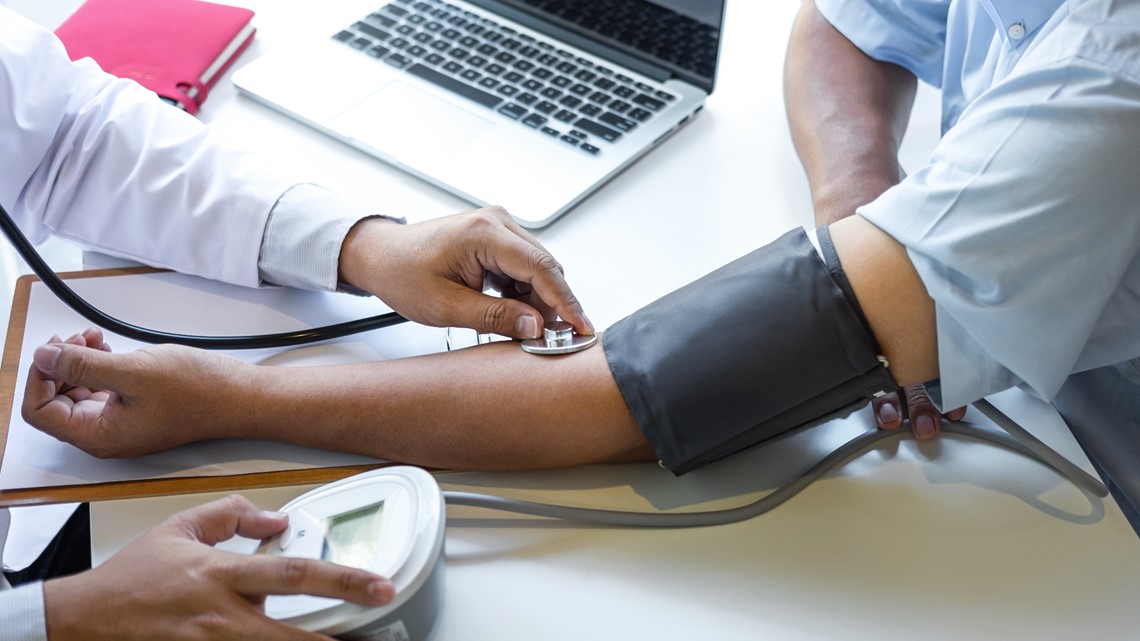Blood
Just one alcoholic drink a day can raise your blood pressure over time, analysis finds
“Limiting alcohol intake is advised, and avoiding it is even better,” a study author said.
Even one drink a day may be enough to raise blood pressure levels as you age, a new research analysis says.
The study published Monday in the American Heart Association’s journal Hypertension found people who routinely drink alcohol — even in small amounts — were likely to develop higher blood pressure compared to people who don’t drink.
“We found no beneficial effects in adults who drank a low level of alcohol compared to those who did not drink alcohol,” senior study author Dr. Marco Vinceti said in a release. “We were somewhat surprised to see that consuming an already-low level of alcohol was also linked to higher blood pressure changes over time compared to no consumption – although far less than the blood pressure increase seen in heavy drinkers.”
OTHER NEWS: Sweetener found in diet sodas deemed possible cancer cause, but experts consider it safe in moderation
Researchers analyzed seven international studies published in the U.S., Korea and Japan between 1997 and 2021, involving more than 19,000 participants. To avoid confusion from how the size and alcohol content of “standard drinks” can vary across countries, researchers used grams of alcohol consumed rather than number of drinks.
Normal blood pressure is less than 120/80 mmHg. Reviewing the participants’ health data across more than five years and comparing them with people who don’t drink, researchers found:
- Systolic blood pressure — the top number in a blood pressure reading — rose 1.25 mm Hg in people who consumed an average of 12 grams of alcohol per day. That’s the equivalent of one 5-ounce glass of wine or a 12-ounce beer. For people who drink four times that amount, the difference rose to 4.9 mm Hg.
- Diastolic blood pressure rose 1.14 mm Hg in men consuming an average of 12 grams of alcohol per day. For those who drank four times that, this difference was 3.1 mm Hg. This association was seen in men, who made up 65% of the participants, but not in women. Researchers said systolic blood pressure is a stronger predictor of heart disease risk than diastolic.
Blood pressure at the beginning of the studies also mattered. Participants who started out with higher blood pressure readings had a “stronger link between alcohol consumption and blood pressure changes over time,” said study co-author Dr. Paul K. Whelton in the release.
The Centers for Disease Control and Prevention says tens of millions of Americans have high blood pressure, which increases people’s risk of issues like heart disease and stroke.
“Alcohol is certainly not the sole driver of increases in blood pressure; however, our findings confirm it contributes in a meaningful way,” Vinceti said. “Limiting alcohol intake is advised, and avoiding it is even better.”
The American Heart Association’s recommendation is that people who don’t drink already shouldn’t start, and those who do should talk to their doctor about moderation. The U.S. government’s dietary guidelines define moderate drinking as two drinks a day or less for men and one drink a day or less for women.
RELATED: Millions could benefit as teen’s restored sight proves effectiveness of gene therapy eyedrops

